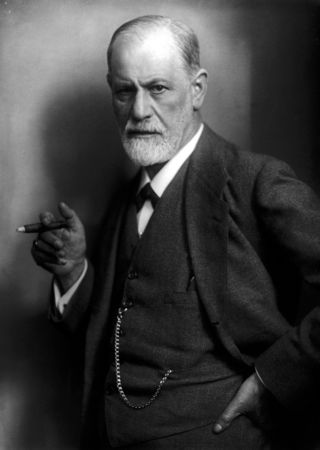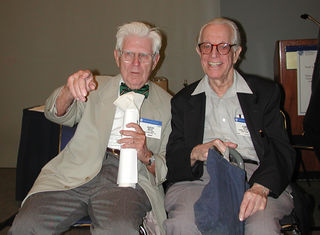Defense Mechanisms
Psychodynamic Vs. Cognitive Therapy: Defense Mechanisms
Irrational cognitions and defense mechanisms may share a common purpose.
Posted October 31, 2016 Reviewed by Abigail Fagan

"What makes them defense [mechanisms] is not that they protect you from pain—they don't, clearly. They suck at doing this, look around. The purpose of defense mechanisms is to stop you from changing." —The Last Psychiatrist
Many recent "schools" of psychotherapy reject almost all of the concepts of the original one, psychoanalysis (PA), and its updated version, psychodynamic therapy. Part of this is the analysts' own fault. They often openly attacked critics of some of the concepts, telling them they needed to get into psychoanalysis "to find out why they were resistant to the ideas."
In other words, if you found some of the ideas problematic, you had a mental problem. Added to this was analysts' tendency to continually support some of the more far-fetched, clearly wrong aspects of their theory such as penis envy in women and schizophrenogenic mothers.
In point of fact, psychoanalysis is a whole collection of theories that interrelate — and so are all of the other schools of therapy. To think that if one of the subtheories is wrong, then they all must be wrong, is black and white thinking — something cognitive-behavioral (CBT) therapists themselves label as irrational.
And speaking of cognitive-behavioral therapists, that is exactly what many of them did in regards to psychodynamic therapies, and in the process threw out the baby with the bathwater.
One of the more useful concepts from psychoanalysis — something that most of us acknowledge implicitly in our daily lives, is that of defense mechanisms. As originally defined by Sigmund Freud, the founder of psychoanalytic therapy, a defense mechanism is a tactic developed by a person, subconsciously, to protect against anxiety — specifically, the anxiety created by conflicts within the mind over one's biological impulses versus the values of the individual learned from his or her cultural milieu.
For example, when someone's desire to have sexual relations with a stranger conflict with a belief in the societal convention of not having sex outside of marriage, unsatisfied feelings of anxiety come to the surface. To reduce these negative feelings, the ego might employ one of the defense mechanisms to either deny the existence of or "undo" the forbidden impulse.
The most common defense mechanisms are named regression, repression, reaction formation, isolation of affect, undoing, projection, introjection, turning against the self, and somatization. Interested readers that are not familiar with the various PA defense mechanisms can find definitions of almost all of them here.
Cognitive-behavioral therapists, as opposed to analytically-oriented therapists, reject the whole concept of the unconscious and defense mechanisms — although they often seem to recognize their behavioral manifestations and just call them something else.

They believe that seemingly neurotic or conflicted behavior stems mostly from irrational beliefs. The first cognitive therapist was Albert Ellis, who came up with his theory at least a decade before his model was hijacked by another psychotherapy guru, Aaron Beck. Ellis listed some of these irrational beliefs:
- It is a dire necessity for adult humans to be loved or approved by virtually every significant other person in their community.
- One absolutely must be competent, adequate, and achieving in all important respects or else one is an inadequate, worthless person.
- People absolutely must act considerately and fairly, and they are damnable villains if they do not. They are indistinguishable from their bad acts.
- It is awful and terrible when things are not the way one would very much like them to be.
- Emotional disturbances are mainly externally caused and people have little or no ability to increase or decrease their dysfunctional feelings and behaviors.
- If something is or may be dangerous or fearsome, then one should be constantly and excessively concerned about it and should keep dwelling on the possibility of it occurring.
- One cannot and must not face life's responsibilities and difficulties and it is easier to avoid them.
- One must be quite dependent on others and need them and one cannot mainly run one's own life.
- One's past history is an all-important determiner of one's present behavior and because something once strongly affected one's life, it should indefinitely have a similar effect.
- Other people's disturbances are horrible and one must feel upset about them.
- There is invariably a right, precise and perfect solution to human problems, and it is awful if this perfect solution is not found.
These irrational beliefs cause people to do irrational things like overgeneralize, catastrophize, awfulize, "musterbate"(I simply "must" do this or that, or else), or "should" all over themselves — and this leads to low frustration tolerance, self-pity, anger, depression, and behaviors such as procrastination, avoidance, and inaction. To a musterbater who feels like a failure because he came in second at something, Ellis might counter, “What Jehovian Mandate says that you must come in first!?”
Cognitive-behavioral therapists are beginning to grudgingly admit that these irrational beliefs are often tied to one’s upbringing as a child. They originally believed, and many still do, that they only occur because people are fundamentally and innately irrational.
So who’s right, the CBT folks or the PA folks? Well, of course, both are right. And both are also wrong. Let me explain.
When I first learned psychoanalytically-oriented psychotherapy, I began to notice what a blogger named the Last Psychiatrist mentioned in the quote at the beginning of the post. Defense mechanisms were envisioned by Freud as protecting the self against anxiety, but neurotic people were the most anxious people out there! Yes, indeed defense mechanisms do not really prevent anxiety at all. So what do they do?
What defense mechanisms do, from my unified therapy (UT) prospective, is to block a person's expression of innate thoughts and desires that run counter to the roles they feel they must play to maintain the constant functioning of their family of origin (family homeostasis). If a belief or a desire conflicts with that role, it has to be blocked so that the person does not change from their role behavior. This specifically is the “change” that is blocked. People literally try to kill off parts of themselves that are incompatible with their social role (mortification).
If this is indeed the case, it becomes easy to see that the irrational beliefs listed by the CBT’ers also come in handy. People use these beliefs to discourage themselves from indulging in certain behaviors that they might otherwise want to do if they became self-actualized and stopped playing their role. (Self-actualization is a term used by a third major, overarching school of psychotherapy, emotion-focused therapy, which includes gestalt therapy and client-centered therapy. It means the realization or fulfillment of one's talents and potentialities).
For example, a woman with a gender role conflict who secretly wants to be a singer instead of a housewife as her sexist family demands will stop herself from being a successful singer if she thinks, overgeneralizing, that having failed one audition invariable means that she will never pass one in the future. That being the case, why bother trying?
In other words, the irrational beliefs listed by Beck and Ellis serve the same function as defense mechanisms. One could say, in fact, that they are defense mechanisms!
I once suggested to Albert Ellis during a Q and A at a therapy conference that perhaps irrational beliefs and defense mechanisms serve the same purpose. He naturally launched into a sarcastic tirade at me for daring to even think something like that. Oh well.




